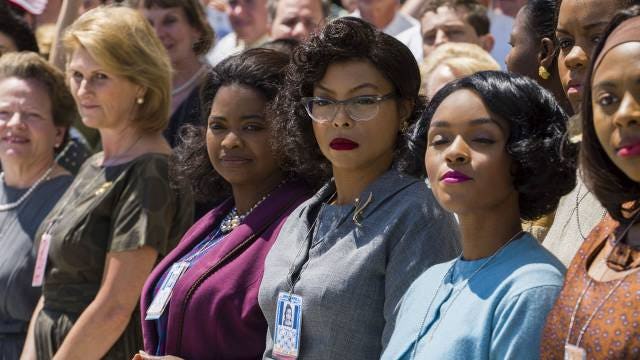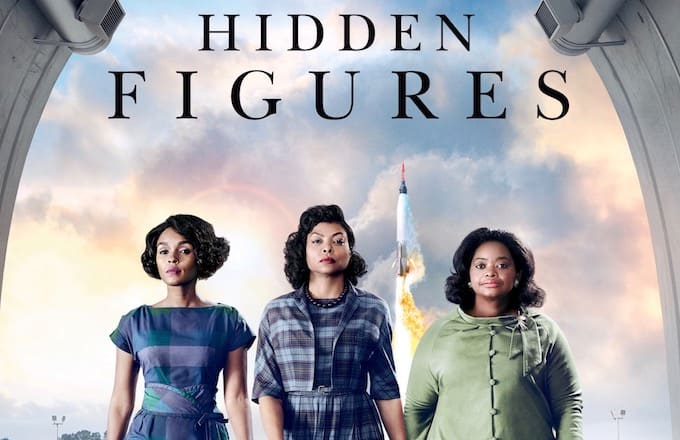Anyone can be an engineer, can’t they?
Anyone can be a scientist or a mathematician – what’s stopping them?
Well, sadly, along with many other ludicrous laws in humanities history if you were a woman during the 60’s and a black one at that all of the above is completely and utterly out of reach. That is until our three ‘kick-arse’ leading ladies show the world that this simply shouldn’t be the case. Based on an incredible true story of powerful and brave women who paved their way through the Mercury program at NASA, we follow Katherine (Taraji. O Henson), Dorothy (Octavia Spencer) and Mary (Janelle Monae), African-American mathematicians who played a vital role in the famous space race.

Our three protagonists find themselves in a most unwelcoming environment. Yes, they have jobs in a climate that avoided hiring woman and certainly African-American’s but to be treated in such a way behind a closed door at the other end of campus (quite literally) and expected to do the same amount, if not more work than the white women onsite is completely unacceptable. When Katherine, a very talented ‘human computer’ as they are referred to is asked to come and work with the core team in calculating the momentous launch of astronaut John Glenn the immense joy we feel for this woman is overwhelming. Although, when placed in a room full of pretentious white men who don’t even want to touch the same coffee flask as her is deeply sickening.
The story alone is enticing enough, but what really does it justice is the perfectly chosen cast. Kirsten Dunst as Vivian the classic white woman who you hate just a bit more every time she is on screen until she thankfully sees the wrong in her ways is ideal next to Octaviva Spencer bringing sass to her overworked Dorothy. Jim Parsons from The Big Bang Theory still has that comedic air about him but pulls through as a jealous man who can just about stomach that a black woman can do his job better than he can, whilst Kevin Costner is comfortable as main man Stafford and there is nothing but admiration for him as he personally smashes down the ‘coloured only’ sign above the women’s bathroom. Taraji. P Henderson as the glasses wearing Katherine is fabulously funny and fiery, whilst Monae’s Mary shows nothing but determination to get what is rightfully hers – and these woman do all this whilst being constantly put down making their story all the more hard hitting.

Above all else, Hidden Figures is an uplifting, feel good feature that immensely entertains. Writers Schroeder and Melfi work with Margot Lee Shetterly’s source material to the right notes and provide plenty of laughs along the way. There are moments of frustration, anger yet even though these women had to fight in every aspect of their lives, the fact they fought so hard is inspiring and the sole reason black women were eventually seen the same as white women. It took time but the most importantly thing is that is caused a shift and a shift that was society desperately needed. This was during a time where civil unrest in local towns was on the rise with Martin Luther King at the forefront and the crowds started to open their eyes to segregation. The divide between white and black is portrayed incredibly well as well as the on point 60s setting created here.
This film tackles many issues; racism, sexism, feminism and the space race between the Soviet Union. There are so many questions brought to the forefront that one will go away pondering on such things as well as feeling a tingle of happiness for those who thought being treated like dirt was normal only to igniting a revolution that made the world it is today.
Hidden Figures is out 17th February.

